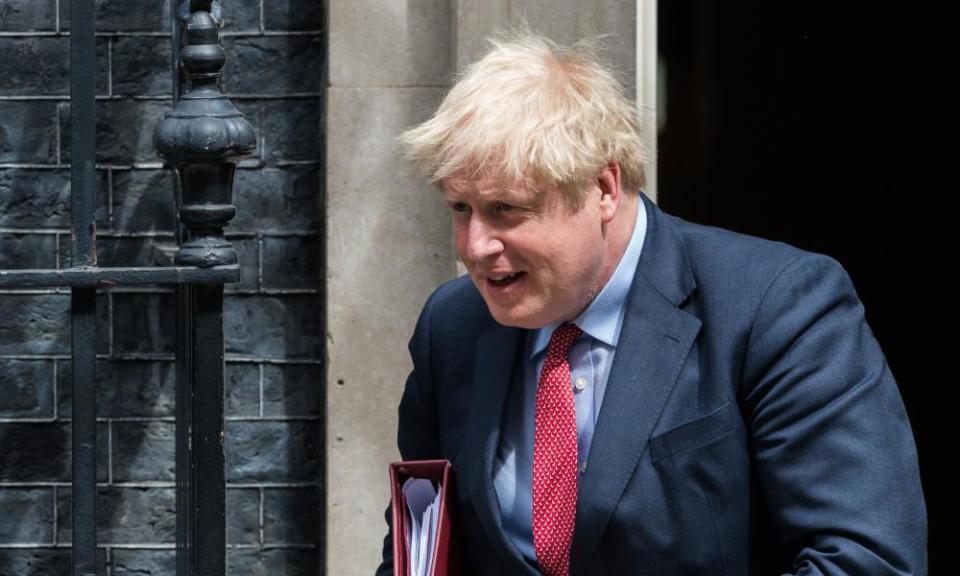The Guardian view on Brexit and devolution: a crisis in the making

One of Boris Johnson’s first acts on becoming prime minister was to award himself the title of “minister for the union”. The position has its own page on the official government website, but under the rubric, where portfolio responsibilities usually appear, there is only blank space. The symbolic title is meant to signify Mr Johnson’s commitment to strengthening ties between the four nations of the UK. That is a tacit acknowledgment that the Conservative leader is easily cast as a prime minister for England only, and that his Brexit plans put the union in jeopardy.
The threat is most potent in Scotland, where a majority voted remain and Nicola Sturgeon is deft in tapping the frustration of people who do not vote Tory and feel overruled. Holyrood elections next May look likely to perpetuate the dominance of the Scottish National party and award Ms Sturgeon another term as first minister. Nationalists would demand a second independence referendum. Mr Johnson is disinclined to grant one.
And the backdrop to those dynamics is the escalation of Brexit from divisive idea to disruptive legal change and economic shock. On the current timetable, the UK leaves the EU single market on 31 December. In preparation for that change, parliament will legislate in the autumn for a UK-wide internal market, setting regulatory parameters for economic activity that have hitherto been compliant with EU rules.
The UK will regain regulatory autonomy in areas such as environmental protection and agriculture. There will also be more leeway for industrial subsidies, depending on what kind of deal, if any, is done with the EU in the meantime. In any case, the default setting will be for powers previously routed through Brussels to be wielded from No 10, not Edinburgh or Cardiff. Nationalists complain that Mr Johnson’s approach expands the range of “reserved” all-union competence, breaching the spirit of devolution.
Some raise the prospect of trade deals that could allow products into the whole UK market that Scottish or Welsh governments might choose to regulate more strictly if they had sufficient control – notorious chlorinated American chicken, for example. (Under the withdrawal agreement, Northern Ireland has its own unique regulatory status, aligned with European norms, and unique complications that then arise from Brexit.)
There are sensible, practical reasons why new internal market rules need to cover the whole union. The UK is a fully integrated economic space operating in a global economy as a unified country. There is also an incoherence in the Scottish nationalist position that demands regulatory independence from London, while mourning the fact that regulation is no longer dictated in Brussels. But, as the Brexit debate demonstrated, appeals to economic pragmatism and national identity are different categories of political argument. Their advocates speak past each other more often than they engage in constructive dialogue.
And Mr Johnson is unqualified as a mediator. His charm is overstated by his supporters, and they are few in Scotland. His usual political method is short-term tactical improvisation and culture-war provocation as a distraction from administrative failure. The likelihood that he will blunder into a constitutional crisis in Scotland and weaken the union further with rhetoric that stokes an English nationalist backlash is high. He does not want to be recorded in history as the prime minister who broke the UK, but there is no sign that he has a strategy for avoiding the confrontation that would precipitate that calamity. He badly needs one.

